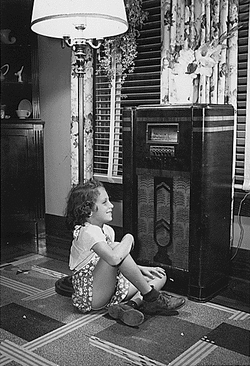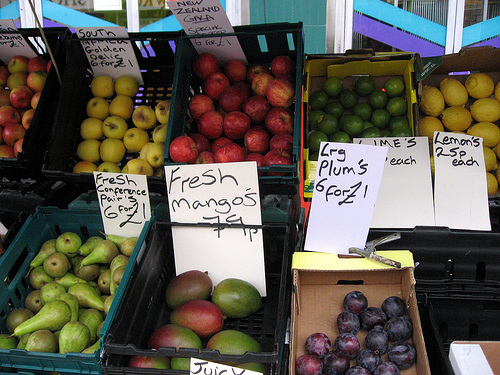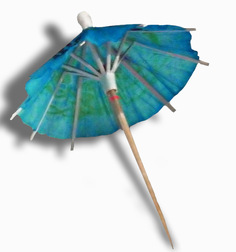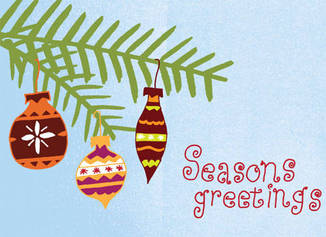|
I'm sure that all of you, my lovely readers and fellow writers, know how to use apostrophes correctly. But since I'm always being driven to distraction by their frequent misuse — in books, on signs, in promotional literature — I decided I'd write this: my potted guide to the apostrophe. If you know someone who struggles with the little blighters then why not print out a copy and staple it to their head … er, I mean tape it to their computer screen. The first thing you need to know about apostrophes is that they have two main uses: to indicate contraction, and to indicate possession. That sounds pretty abstract and not at all memorable, so here are some examples. Contraction Showing that one or more letters have been dropped from a word or words. cannot = can't we are = we're it is = it's Basically, if you squeeze a couple of words together so hard that a letter or two fall out, you have to put an apostrophe in place of the missing letters.* DANGER ZONE! There are some words for which a shortened form has become the standard — like photo instead of photograph, or phone instead of telephone. But in the days before the abbreviation became a word in its own right, older generations may well have been taught to indicate the missing letters by writing 'phone and photo' — the latter of which also leads them to write the plural as photo's. This is no longer considered correct, and in fact I can't think of any shortened nouns that would still take an apostrophe. (On the other hand, if you're writing dialogue in which the speaker drops letters as part of an accent, you'd still use one — e.g. goin' instead of going. That's because the truncated form isn't yet a widely accepted alternative … though give it time.) A further note on plurals It's possible that some of us cling to our photo's because, in general, people seem to have an inbuilt difficulty with making plurals from nouns that end in vowels. This results in the famous greengrocer's apostrophe: tomato's, apple's, banana's. The same mental block arises when dealing with numbers (the 1970's) and acronyms (CD's). Let me put this in simple terms: an apostrophe is NEVER used to indicate a plural.** We eat tomatoes, apples and bananas, and we listen to CDs from the 1970s. (At least, some of us do.) Possession Showing who or what something belongs to. This house belongs to Bob = this house is Bob's These are toys for children = these are children's toys He gave a notice period lasting two weeks = he gave two weeks' notice Note that people often get the last example wrong, because the notice doesn't seem to belong to the two weeks in the same way that the house belongs to Bob. Yet all these phrases have something in common: they can be rewritten using the word 'of'. Bob's house = the house of Bob children's toys = toys of children two weeks' notice = notice of two weeks The same rule can be applied to any phrase indicating duration or length. So it's in three days' time (after a time period of three days) and after a mile's journey (after a journey of a mile). Basically, if you can rewrite it using 'of' then it takes an apostrophe. DANGER ZONE! The exception, of course — didn't I say there's always an exception? — is possessive pronouns. A man brushes HIS hair. A woman ties HER shoe. A small blue cocktail umbrella contemplates the meaning of ITS existence. These are all 'of' phrases (the hair of the man, the shoe of the woman, the existence of the umbrella), but they repel apostrophes like some kind of punctuation-defying force field. People often get its wrong (because, after all, it's is right in some situations, and who can be bothered to learn which is which? Certainly not Apple's autocorrect function). And I've even seen her's on occasion. So if in doubt, think of his. You'd have a job to squeeze an apostrophe in there (though a greengrocer might try); hers and its deserve to be treated with the same dignity. Likewise for yours and ours … unless, that is, you'd write min'e. Remember also that the apostrophe always falls directly after whoever or whatever is doing the possessing. So if you have a princess beloved of the people, she's the people's princess. (And the Daily Express will continue to write 'news' about her long after her death.***) If you have a room for the use of ladies, it's the ladies' room. I've always thought Mothers' Day should be written thusly (because it's a day for all mothers), but I can live with Mother's Day (since each of us is only honouring our own dear mum). On the other hand, Mothers Day means very little, and Seasons Greetings is equally meaningless. Good people of the world! Rise up and oppose the tyranny of incorrectly punctuated greeting cards. In short …Apostrophes indicate missing letters: I'm, wasn't, should've.
Piano', 'fridge and 'bus belong in history, not in your writing. Apostrophe's and plural's have nothing to do with each other. (Even typing that makes my eye's water.) Apostrophes also indicate ownership: Alice's adventures. This ownership can be a bit abstract: two minutes' silence. Pronouns are the exception. If something belongs to it, it's its. Poorly punctuated greeting cards are the main reason for the decline of modern society. * Of course, that technically means shan't (shall not) should be written sha'n't, and won't (will not) should be written … er … w[o]'n't? But that's English for you. ** Well … like all things in life, there is an exception. The whole point of punctuation is to remove any ambiguity. So if you wanted to say you'd typed five instances of the letter i, it might be considered permissible to say you'd typed five i's (since otherwise the plural would be indistinguishable from the word is). But in general, Plurals Do Not Require Apostrophes is a good motto to adopt in life. Perhaps as a coat of arms. *** Sorry, bit of a UK-specific joke there.
2 Comments
25/3/2013 12:45:19 pm
An absolutely wonderful post. *laughing my ahem...off!*
Reply
Your comment will be posted after it is approved.
Leave a Reply. |
Archives
July 2016
Categories
All
|




 RSS Feed
RSS Feed
